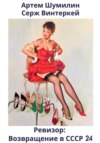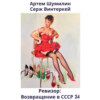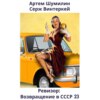Читать книгу: «By Blow and Kiss», страница 16
CHAPTER XXII
“Dolly, it won’t be long now, will it?” said Ess, trying to hold her voice steady.
He tried to answer hopefully. “You never know. It might stop rising any minute, and start to drop five minutes after.”
“Couldn’t we tie the buggy to the tree?” she asked. “It would float, wouldn’t it, and support us?”
“It might,” he said doubtfully. “But, anyhow, we can try. But what are we – wait a minute,” he jumped to his feet excitedly. “What an ass I was not to think of it! What did I do with the harness – yes, here it is.”
He stooped and dragged out the tangled leather from under their feet. “And I left the reins tied to the wheel when I slipped the horses. We might manage to scale the tree yet.”
He disentangled the traces, and leaned over and untied the reins and knotted them together, working with shaking fingers and in feverish haste.
He stood up in the buggy seat and whirled the looped coils of leather, and threw them high for the fork of the tree above them. He missed the first few times, or the coils caught and hung there till he jerked them back, but at last they curled over the fork and fell to the other side of the tree. Dolly jumped down and went wading round, and leaped and caught the end of the trace. “Hold that end, Miss Ess,” he said, “and stand up and catch this one if you can.”
He swung the end round to her, and she caught and held it while he climbed the buggy. He stood on the seat again and knotted the far end in a loop, and passed the other end through it and hauled taut till it jambed on the branch above, took a couple of turns of the free end round the wheel, and told Ess to hold on. “And up I go,” he said. “And then I’ll haul while you climb, and we’ll lash ourselves to the mast and hang on till the flood goes where it jolly well pleases. Hup,” and he sprang and commenced to climb hand over hand with his feet against the trunk.
“See how it’s done,” he called down breathlessly, when he reached the fork and sat astride it. “Easy as walking upstairs. Now untwist your end and pass it two or three times round your waist, and tie a firm knot – half-a-dozen knots. Have you done that?”
“Wait a minute,” she called back. “Yes – all right.”
“Now twist the loops round, so the knot comes fair to the front, and reach far up as you can and grab with both hands, and climb as much as you are able. Now – go.”
She tried to imitate the way he had put his feet against the trunk, but they slipped, and she bumped into the tree, bruising her knuckles and forcing a cry. “Climb,” shouted Dolly. She struggled, and Dolly strained and hauled, but the weight was too much, and he had to slack her down the two or three feet she had climbed.
“You are a lively weight, you know,” he called down laughingly, but with a feeling of dismay.
“What will I do next?” she answered. “You can never lift me that height, I know, and I simply can’t climb.”
Dolly sat and racked his brains for a minute. “Well?” she called, and looking down he could just see her in the dim light standing with face upturned to him.
“Wait a bit,” he said. “I’m coming down again. Untie yourself and hang on to your end.”
He unfastened the knot beside him, and threw the end over a higher limb, and hauled up the slack from Ess, and dropped his own end, and came sliding down the double leathers.
“We’ll have to try another dodge,” he said. “You can use your own strength better to help me this way.”
He knotted a loop in one end, and passed it over her head and down to form a seat for her.
“Now, you sit in that,” he said, “and I’ll haul my end down, and you keep taking a fresh grip of the same downhaul end and pull it down at the same time, and that hoists you up. Now – ready – heave. Hoo-ray. Heave again.”
It was something of a struggle still, but this time it was successful, and Ess seated herself in the crotch of the tree.
Dolly tied one end to the seat of the buggy and lifted it from its place, and after Ess had made an end fast, swarmed up to her.
“We win,” he exclaimed triumphantly. “Now for our house-furnishing”; and he hoisted up the buggy seat, and, when he had found a convenient branch and fork, hauled the seat to it, and jambed it there, and lashed it securely. “Walk into my parlour,” he cried, and helped her to clamber to the seat, and when she was safely on it, showed her where to place her feet on a lower branch, and passed a turn of the rein round her and to the back of the seat. “Hoo-ray again,” he said at last. “Now you can’t fall out if you tried, and you can sit comfy or curl up on the seat, and have a snooze if you like.”
She smiled at him, very faintly, for the climb had exhausted her and it made her giddy to look down. So Dolly climbed to the seat beside her, and they sat together and watched the light spread and spread till they could see to the horizon all round them. And all the horizon was water.
There was still a patch of ground a couple of hundred yards from the tree, and the two horses and a heaving, crawling mass of rabbits were on it, but even as they watched the horses one after the other waded into the water. They waded a long way – over a quarter of a mile – before the water reached to their flanks, but after that it deepened quickly, and they saw the horses sink and bob up again, and go swimming downstream.
Dolly waved his hat to them. “Good-bye, old Spot and Dot,” he called, “and good luck to you.”
The water was still rising, and the buggy lifted gently and floated slowly till the current caught it, and it went spinning away towards the river. The rabbits on the patch of ground were being constantly swept off and carried struggling past the tree, swimming frantically and even trying to clamber and claw at the smooth trunk. Ess shuddered and put fingers to ears to shut out their squeals as the water carried them off; but soon the last of them went, and the water flowed over the last of the patch, with only a slight ripple and downward slide to mark where it had been.
Wreckage of all sorts began to swirl down past them. The tree appeared to stand in some current, and they would see various objects appear far off, and slew round and come sliding swiftly down close to them. There were innumerable drowned sheep; a few cattle and, once, a bullock, with his head high out of the water and swimming strongly; a litter of planks and beams and rafters, which had once been some sort of hut, but was now no more than a jumble of timber; bushes, trees, with the leaved branches dipping and twisting, and heavy dead logs. Dolly pointed out a square table sailing down with its legs in the air, and then a rough home-made chair bobbing after it, and he joked about swimming after them and adding to the house furniture.
But even Dolly’s spirits were almost dying out, although he still made desperate efforts to be cheerful and make light of their position. Ess sat leaning against him, and when Dolly felt her body sink gently to his, and looked down and saw her eyes closed, he slipped an arm about her to support her, and braced himself to sit steady while she slept. His eyes kept a ceaseless watch round the horizon for signs of rescue, although he was almost afraid to think whether they were even likely to have been missed. Nothing came in sight but the long procession of drowned animals and all the litter of the wreckage of the flood. A huge tree had caught its branches on the shallow patch above them, but it gradually twisted and worked free, and slid down to them, and wedged itself firmly with the trunk of their standing tree in its fork. It stuck there, held by the pressure of the water, and presently a long bare trunk sailed down, checked at the shallow, swung round, and slid over with a rush, struck the standing tree with a shock that made it quiver, and woke Ess with a startled cry, swung again, and lodged broadside against the tree. The tangled branches of the other tree helped to hold it, and object after object caught on the two and wedged there, with the water surging and tearing at them. Dolly watched the things pile up with a semi-detached sort of interest, till with a shock he woke to the danger they meant. The tree and the branches they were lodged in quivered under them like a tuning fork, gently at first, but, as the barrier grew and offered a larger resistance to the water, with stronger and stronger vibrations. Their tree tilted a little, and then cracked loud and ominously, and tilted again to a sharper angle.
And then far off Dolly saw a boat.
He woke Ess, and the two of them coo-eed and waved, and Dolly climbed higher and pulled his shirt off, and broke a branch and made a flag, and waved it wildly, till a figure in the boat stood and waved back.
Dolly yelled triumphantly and clambered back to the seat, just as the tree cracked loudly again and canted still further.
“Just about the nick of time,” remarked Dolly. “This old tree is gettin’ a bit too shaky a perch for comfort.”
“Why are they so slow?” said Ess, watching the boat labouring towards them.
“Look down and see the rate the current is running,” said Dolly; “that’ll tell you why. Lord, don’t I pity them slogging against a stream like that? I dunno many more heart-breakin’ jobs. Two men pulling an oar apiece, and the boat loaded deep too evidently.”
“Dolly, what are they doing – where are they going?” cried Ess, in sudden alarm, as the boat swung broadside to them and commenced pulling away. A figure in the stern waved again, and Dolly took comfort.
“Pullin’ off somewhere to get out of the run of the current, I expect,” he said. “They’ll take a sweep round and drop down on us most likely.”
That was evidently the plan, for they saw the boat curve round again a full mile off on its new course, and begin to struggle upstream again, and now it appeared to move faster. Dolly wished most fervently that the rescuers could realise the plight they were in, and gauged with some anxiety the angle they were heeling to.
It would be fully an hour, and perhaps two, before the boat could win to them, he calculated, and then set to work to cast off the lashing of reins round the seat, and made Ess move to a less comfortable but more safe position, and lowered his rope and swung down, and tried to push and pull some of the barrier away. He could move nothing but the very slightest and least of the obstacles, and several wettings were the only results of his labour.
He gave it up at last, and climbed back up the sloping trunk to wait with Ess and all the patience they could command for the slow approach of the rescue.
They saw the boat turn at last, and come shooting across and downstream to them, and, heart in mouth, waited to see whether it would reach them or be swept past. The men were pulling desperately, and the boat forged slowly across. They could see now that there was another lad and a woman and two children in the boat, and again Dolly murmured sympathy for the slog the rowers were having.
The boat was almost abreast of them now, but fully a hundred yards out, when it spun round head to stream and edged slowly in, the rowers fighting hard to hold their position, and doing that and no more.
“It’s Steve,” said Dolly, suddenly, “good old Steve.” He stood and waved his hat, and yelled cheers and encouragement to the boat.
“Go it then – all together – hup – hup. Well ro-o-owed. Get your hands away, bow – lift ’er – lift’er.” He was hopping with excitement. “They’ll do it, Miss Ess. Look at ’em. Wish I had one of those oars.” He stood and yelled again, and now they could see clearly the set faces and clenched teeth of the rowers, the dogged heave and strain, the panting recovery, and again the stubborn pull. They were in the full grip of the current now, and do all they could, the boat was dropping down and back. They saw Seaman Dick West look round and say something to Steve, the boat’s nose slanted in to them, and they swept fast downstream and past the tree again.
“They’ve missed us,” gulped Ess. “Oh, Dolly.” But almost as if he had heard the words Seaman Dick shouted to them, “We’re coming,” and bent his back to the oar again.
“Smart chap that,” said Dolly, with shining eyes. “See the dodge – swing into the backwater this rubbish is making, and creep up in the lee of it.” He shouted again, “Well ro-o-owed again. I’ll steer you, boys. Pull as I say. Pull bow, easy stroke, easy, a couple together now, pull – pull, you tigers – hup again – easy stroke. Now you’re right – all together – now you have it.”
The boat was in the dead water behind the barrier now, and came on easily, although they could see that the rowers were nearly spent with their efforts. Seaman Dick shouted to them to stand by for the line, unshipped his oar and rowlocks, and slipped them together into place for Steve to pull on both oars, and, as Steve kept pulling, lifted his coil of rope, and flung it looping and untwisting into the tree. Dolly caught it and took a couple of swift turns, and shouted “Right,” and the men dropped back in their seats with drooped shoulders.
Steve lifted his head. “You all right there?” he called weakly, and Dolly shouted cheerful reassurances.
“Take your time and get your wind,” he called. “You must be dead beat. Don’t I know what it is to be rowed out? Good men.” He hauled on the rope, and pulled them right up to the driftwood and under the tree.
“Wait a minute,” said Seaman Dick; “I’ll slip up and give you a hand.” He pulled the boat close in to the trunk, caught the reins that Dolly had left hanging, and swarmed nimbly up.
“You must be feelin’ pretty bad, Miss,” he said. “But you’re all right now. We’ll have you in warm blankets in a brace o’ shakes. Let me loop this line about you.”
“Thank you for coming,” said Ess, jerkily. “It was such hard work too.” She laughed a trifle hysterically, for the long exposure and the strain were telling now that the reaction had come. “And – and I thought you were running off and leaving us.”
Seaman Dick looked keenly at her. “You’re right as ninepence now, Miss,” he said soothingly. “Don’t worry any more.”
“Right as ni-ninepence,” said Ess. “No – don’t touch me – I’m too wet to – to touch.”
“Buck up, Miss Ess,” said Dolly, “you’ve been such a brick, y’ know. Stick it out now.”
“Never mind being wet,” said Seaman Dick, looping the rope about her dexterously. “We’ll have you dry enough in no time.”
“But I – I’m so wet,” she repeated foolishly, “so wet.”
She clung to the branch when they would have lifted and lowered her, till Dolly gripped her shoulder and spoke in her ear. “Miss Ess, be a sport. We’re all pretty near used up, and you’re making no end of trouble. Just one effort, and it’s over. Now then.”
She gulped once or twice and sat up. “All right, Dolly,” she said. “I’m sorry; but I’m all right now. I’m ready.”
But her nerves were badly shaken, and she had hard work to hold back a shriek as she dangled over the water and was dropped gently to the boat. Steve was waiting to catch and steady her, with love and pity and joy lighting his eyes.
“Ess,” he said hoarsely, as she reached the boat, “Ess… Thank God…”
“Don’t touch me,” she said weakly, “don’t touch me…”
Steve drew back as if the words had been a blow in the face – drew back and flinched, as he had not drawn back from the blow of her whip; and Ess sank down in the boat and covered her face with her hands, and muttered to herself, “I’m so wet – don’t touch me.”
The other woman drew her down beside her, and patted her head and soothed her, while Dolly and Seaman Dick lowered themselves to the boat.
They pushed off, and Dolly insisted on taking an oar. It would warm him, he said, and he was longing to handle an oar again, anyway. Seaman Dick took the other, and they pulled out into the current, and went shooting downstream and making for the township and the bridge.
And Steve huddled up in the bows with smarting hands that were blistered and skinned with the unaccustomed work at the oars, and muscles that ached as if he had been beaten with clubs. He spoke to Dolly, and answered his questions and listened to his story of their adventures mechanically. He heard it all dully, as he heard the slow rhythmitic roll and cluck of the oars in the rowlocks and the rippling hiss and lap of the water under the bows; but clearer than all during the long pull back he could hear Ess’s words over and over again, “Don’t touch me.” He had finished a hard day’s work only to saddle and ride through the night, and the dangers of the Toss-Up, and the weary road along the river bank; he had pulled and strained at the oars till his muscles cracked; he had kept up through it all, because it was for her, and because he lived on the hope that he might find her. He had listened with beating heart for the sound of her voice through that last bitter struggle to reach the tree, and he had waited with hope and love surging through him as she dropped to his arms. But… “Don’t touch me … don’t touch me…”
His hopes had sprung again warm and thrilling, after that letter to her uncle and the scene with Ned Gunliffe. She had not written him, or given word or sign that she had turned to him again, but he thought that after she had seen the sort of man Ned was, she might discount what he had told her and led her to believe before. Well, there was an end to all that. Even in her extremity – even when her relief at her rescue might have blotted out her bitterness – she remembered, and would not let him as much as lay a hand on her to help her.
She roused a little presently, and asked Steve how he came to be there and how they had heard at the Ridge of their being cut off, and she thanked him for coming and for what he had done. And Steve answered coldly and briefly, thinking she only spoke the words she did out of a sense of duty, and because she ought to thank him.
And Ess again misunderstood his curtness, and so the breach widened again that had been so near to closing; and they both sat there with hearts yearning to each other and the bare boat’s length between them; only the boat’s length, and that so easily passed. But not so easy to pass was the length and breadth of the misunderstanding that separated them, as misunderstandings separate so many others – a tiny stream perhaps, that runs from the spring of some small trifle, and rises and swells till it runs as wide and destructive as the floods did that day over the Coolongolong paddocks.
CHAPTER XXIII
With its extra load the boat was perilously deep in the water; it had picked up the other people off a patch of high ground, where they had been cut off, and were being threatened by the still rising waters; but the current carried them towards the township with little more exertion than was required to keep the boat pointing the right direction and to dodge the flotsam that at times swept dangerously near their overloaded craft.
But they came at last to the bridge and swept past the end of it, and their line was caught by the watchers on the bridge, and they were hauled into safety and helped stumbling with weariness up the slope to the township, and hot food and drinks pressed on them, and the hospitality of the whole township flung wide to them.
Trooper Dan and Mrs. Dan were waiting with the others to see the landing, and Mrs. Dan ran to Steve. “Man alive, Steve,” she said, “you’re like a walkin’ corpse. You’re just fair beat. You must come to us and stay a day or two, Steve. There’s a bed all ready for you.”
Steve straightened his shoulders and laughed.
“I’m fit as a trout,” he said jauntily; “nothing wrong with me. And there’s Miss Ess there – Scottie’s niece. It might be better if you took her than let her go to the hotel. Where’s Scottie?”
“Off riding up and down the east bank in case you were carried in higher up,” said Mrs. Dan. “Steve – is it the girl?”
“It’s the girl we went to look for,” he said, pretending to misunderstand her. “Miss Ess – Scottie’s niece.”
But Mrs. Dan laughed in his face and darted to her husband. “Dan, come an’ help,” she said hurriedly. “We must take the girl with us. Back me up now, and if we don’t get her, I’ll never forgive you – never.”
“Niver’s a long word, mavourneen,” he said. “But come on an’ we’ll try.”
“She’s coming with us,” said Mrs. Dan to the ones who were helping Ess up the bank. “We’ll care for her till her uncle comes.”
Ess, a little confused by all this bother and welcome, looked at her. “It’s very good of you all,” she faltered. “Couldn’t I go – isn’t there an hotel?”
“Ye can’t,” said Dan, promptly. “What am I to be after tellin’ your uncle when he comes back, if I let ye go to a hotel? We’ve got everythin’ ready, an’ your uncle will be comin’ straight there to look for you.”
Mrs. Dan slipped a hand under her arm. “You don’t know me, my dear, but that doesn’t count these days. I know your uncle, and I’d like you to come. And I’m a friend of Steve’s.” She said the last words in the girl’s ear, and at the hint of colour that drained in her pale face and the soft “Very well – I’ll come,” Mrs. Dan was flushed with a sense of coming victory.
So Ess went with Mrs. Dan and swallowed the food they gave her, and let Mrs. Dan help her to undress and bathe and to stumble into bed, with the sleep closing her eyes before she had lain down. She slept there for a solid twelve hours, and never even heard her uncle come in and stand looking at her with wet eyes, or felt the kiss he dropped lightly on her cheek.
Mrs. Dan woke her at last, and gave her food and warm soup, and made her lie down again, although she protested that she was all right now and had slept enough. And even as she protested her eyes closed drowsily, and she snuggled back in the warm blankets, and was asleep again in five minutes.
Mrs. Dan seized the chance thrown to her hand by Scottie’s call, and proceeded to make the most of it and to extract some information to work on. But she could hardly have found a man so hard to fossick anything from. Scottie was not given to gossip or idle talk at any time, and the merest suspicion that he was being pumped was enough to re-double his native caution.
Mrs. Dan talked first about the flood and the damage it had caused, and the good the rain had done the country. She passed from that on to the narrow escape Ess and Dolly had had, and how thankful she was they had been found in time.
Scottie thanked her and thanked her again for her kindness in taking Ess in. Mrs. Dan seized the opening.
“I could never let a pretty young girl like that go to an hotel by herself,” she said warmly, “and of course we didn’t know when you’d be in again. But there’s nothing to thank me for. It’s glad I am to have her, and I took to her the first minute I set eyes on her.” She laughed lightly. “But it’s not me or you will have the keeping of her long, Mr. Mackellar – she’s too pretty a face for that.”
Scottie murmured something unintelligible into his teacup. (Mrs. Dan had made him wait to drink a cup of tea, and took care to give it to him scalding hot, so that he could not be too quick over it and go before she had pumped him dry).
“And didn’t I hear some word of her being engaged already?” she asked. This was a pure shot in the dark, except for the half light she had from Steve’s remarks about the girl he had lost being engaged.
“She was – she’s not now,” said Scottie, briefly. This did not help much, for she did not know if the engagement referred to was to Steve or the other man.
“That might be as good a thing as it might be a bad,” she said. “There’s only one thing worse for a girl than breaking her engagement, and that’s keeping to it – if they’re not likely to be well matched.”
Scottie made no reply but to gaze absent-mindedly at her.
“Was it any secret who she was engaged to, or that she was engaged?” she asked.
“No,” said Scottie, slowly, and applied him to his cup again.
Mrs. Dan fidgeted. She told Dan afterwards that she had never been so tantalized in her life, nor made so to feel that she was an inquisitive gossiping busybody. “Not a thing would the man tell me except what I asked him point-blank; and then he’d dodge it if he could.” And Dan had laughed at her.
“Who was it, Mr. Mackellar? I’m not asking out of idle curiosity,” said Mrs. Dan. “I’ll be having a talk with her soon, and I might be able to help her. You know a woman can often tell and ask another woman things she can’t or won’t a man.”
“It was Ned Gunliffe,” said Scottie. Mrs. Dan mentally clapped her hands.
She dropped the subject as lightly as she could, so as to take a new line.
“He’s a man I don’t know much of – well or ill,” she said, “but I’ve no doubt Miss Ess will have acted wisely.”
“I’m glad ye’re sure o’ that,” said Scottie, drily. Mrs. Dan felt uncomfortable. “But aren’t you?” she asked.
“Me?” said Scottie, with a slight air of surprise. “I’m never sure what a woman is doin’, right or wrong; or what she’s thinkin’.”
“Small blame to you,” said Mrs. Dan. “For she often doesn’t herself. Miss Ess has been living down in the cities most of her time, I hear?” Scottie made no reply. He was acting on the truism that “if no questions are asked, no lies need be told,” and he improved on it by adding “and no truths.”
“She’d find the men out here a thought rough after being used to folks with city ways,” said Mrs. Dan, “although you’ve some real well-spoken an’ well-educated men at Thunder Ridge – Ned himself is that, and so is Aleck Gault and Steve Knight. Though Steve’s the best o’ the bunch to my way of thinkin’. Don’t you think so?”
“He’s the best horseman we have,” said Scottie.
“He’s more. He’s the best and the whitest man on the Ridge,” cried Mrs. Dan. “You know I think a lot o’ Steve. He once did something for Dan and me that I’ll never forget. And I’d give a hand to help him.”
Scottie said nothing, and laid his empty cup down carefully. Mrs. Dan saw her chance slipping away. “You like Steve yourself, don’t you? You don’t believe he’s as bad as some make out?”
“I’ve kenned waur,” said Scottie, non-committally.
“Would you have anything to say against it if you knew Steve was in love with Miss Ess, or she with him?”
“There’s nae need tae answer that till I ken they are,” said Scottie, smiling calmly.
“Do you think they are?” said Mrs. Dan, desperately.
“It hardly matters what I think – it’s what they think themselves that counts,” returned Scottie, imperturbably, and moved to the door.
When he had gone Mrs. Dan sat down and fanned herself with a weekly paper. “What a man,” she said to herself. “Oh, what a man. He’d drive me mad in a night. I feel as if I’d been slapped and told to mind my own business. And what have I got for it all? She was engaged to Ned Gunliffe – and I could have had that for the asking from any man on Thunder Ridge to-day or, I suppose, anyone in the township in a week. And it’s broken off. I’d have got that from Steve or from her presently, for a hint of a question. I could swear at myself.”
So the attempt to pump Scottie dry failed – possibly because he was dry by nature.
Mrs. Dan had more success with Ess herself when the time came for a confidential chat.
“I believe I have to congratulate you on your engagement,” she said brightly.
“No, oh no,” cried Ess, hotly. “That – that’s over – it’s broken off.”
Mrs. Dan looked at her gravely. “I’m sorry for that,” she said, “the more by reason because Steve is a friend of mine.”
“But it isn’t – nobody knew – I mean I thought everybody knew it was Ned Gunliffe I was engaged to,” said Ess, in confusion.
Mrs. Dan missed nothing of the confusion nor of the flurried words, and before Ess finished speaking had the whole plot of the story clear in her mind. “But it isn’t” – Steve. “Nobody knew” – about the engagement to Steve. So – Steve and she were engaged secretly; they had quarrelled; the girl had immediately become engaged to Ned Gunliffe, and now that was broken off. The conversation she had had with Steve some time before helped her of course to piece the thing together. The next thing to do was to find if Ess were still in love with Steve – she was sure enough he was with her.
So she talked of all the odd things under the sun and dropped Steve’s name casually, and led the conversation round to the rescue from the flood and the part Steve had played in it. And Ess told with sparkling eyes of the struggle of the boat against the current, and her overwhelming joy when it drew in to the tree.
“Ah, and I know Steve would have been just as glad to see you,” said Mrs. Dan.
She saw the girl’s face fall. “No,” she said slowly, “I hardly remember getting into the boat or what he said; but he didn’t say much afterwards. He scarcely spoke all the way back.”
Under her breath Mrs. Dan made uncomplimentary remarks about the absent Steve.
“He’d have seen you were worn out and didn’t want to talk,” she said.
“No,” said Ess, “it wasn’t that, because I spoke and thanked him, and he just barely answered, and no more. And I was sorry for it because I wanted to be friends with him again. I – ” her voice sank till Mrs. Dan could barely hear, “I was once unkind and rather cruel to him, and he hasn’t forgiven it.”
Ess was sitting on the sofa, and Mrs. Dan crossed the room to her, and sat beside her and laid a hand on her knee.
“My dear,” she said very kindly, “I know well how cruel a girl can be; and the more she loves, the more she’s hurt, and the crueller she can be. But a man forgets the cruel parts if kindness follows.”
“But if the man doesn’t want the kindness – if he doesn’t care?” said Ess, with her voice trembling.
“My dear, my dear, can you be so foolish?” said Mrs. Dan, tenderly. “Won’t you tell me the whole story, dear? Maybe I could help you better. It won’t pass my own lips again, not even to Dan. And maybe it will help you to the tellin’ if I give you this first. Steve loves you, girl; worships the ground you tread. I’ve seen him myself start and change colour and tremble at the thought and the word of you, when I spoke it not knowin’ who it was I spoke of, but the girl the heart of him was breakin’ for. There, there now, my dear, tell me all about it an’ let me help.”































